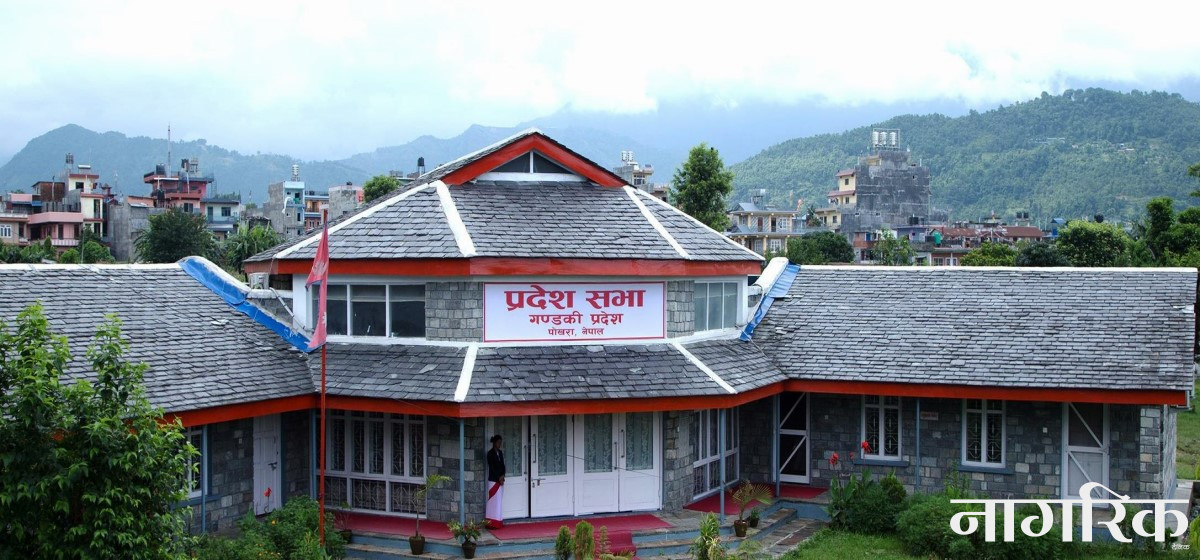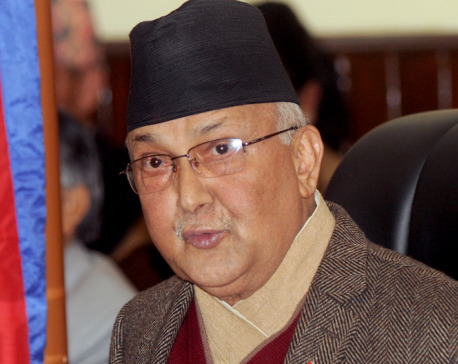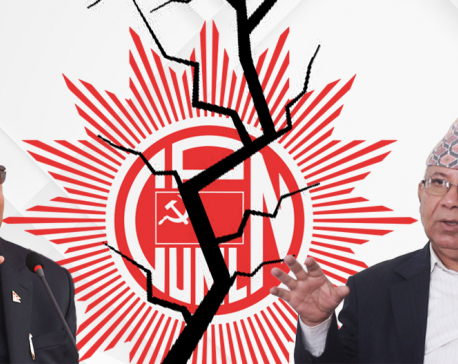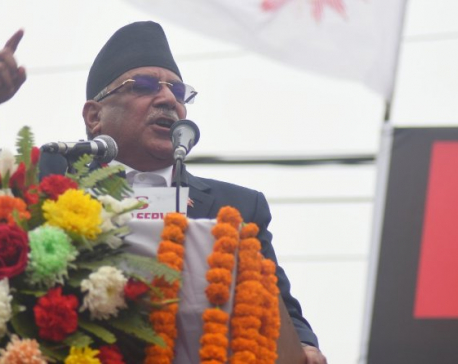
OR
Ugly Face of Nepali Politics
Ruling party engaged in ugly horse-trading as opposition parties mount effort to oust it from power in provinces
Published On: April 30, 2021 07:25 AM NPT By: Republica | @RepublicaNepal

KATHMANDU, April 29: A Constitutional Bench at the Supreme Court was yet to pass its verdict to overturn Prime Minister KP Oli’s decision to dissolve the House of Representatives (HoR) in February. While justifying his ‘unconstitutional’ move to dissolve the lower house of the federal parliament, Prime Minister Oli then predicted that a dirty game of horse-trading would begin if the apex court was to reinstate parliament. Prime Minister Oli repeated this statement at a public function even a day before the court overturned his controversial decision on February 23. He indicated that his rival parties would get engaged in such foul practices, derailing the country’s democratic exercise.
Two months since the apex court reinstated parliament, what Oli predicted has come to be true. But those involved in the horse trading, as it appears, are not the country’s opposition parties, but the ruling party led by Oli himself. What happened in Gandaki Province on Wednesday has shown that the ruling CPN-UML is going to all extent possible, making mockery of democracy, to prolong its stay in power.
The opposition parties — Nepali Congress, CPN (Maoist Center) and Rastriya Janamorcha Party (RJP) – long worked on a no-confidence motion against Chief Minister Prithivi Subba Gurung and it was finalized in the second week of April. As he realized that the no-confidence motion would move ahead despite his efforts to thwart it, Chief Minister Gurung hastily prorogued the ongoing winter session of the provincial assembly apparently to buy time and bring some lawmakers on his side through some unscrupulous measures. This did not work, though.
When the new session of the Provincial Assembly began, the opposition parties jointly registered the no-confidence motion against Chief Minister Gurung. A voting on the no-confidence motion was supposed to take place on Tuesday. But the ruling party lawmakers obstructed the assembly meeting demanding that all lawmakers be tested for COVID-19. As all the lawmakers belonging to the NC and Maoist Center except three lawmakers of Rastriya Janamorcha were kept in a resort fearing that ruling party leaders would engage in horse-trading, the demand to conduct COVID-19 test of provincial assembly members was nothing but tactic to buy time to influence some lawmakers.
What the opposition parties had anticipated came true. A lawmaker belonging to Rastriya Janamorcha Khim Bikram Shahi, whose party at the center decided to vote against Chief Minister Gurung, went out of contact early morning on Wednesday. Although he had tested negative for COVID-19 in the morning, Shahi had decided to admit himself to Charak Memorial Hospital for the treatment of COVID-19, producing a new PCR report that falsely showed him positive for the virus.
NC’s senior leader Ram Chandra Paudel has alleged that the central government had misused its power to hide a lawmaker belonging to Rastriya Janamorcha Party. He also demanded action against the health Institution that had ‘produced a fake PCR report’. “The act of keeping its lawmaker hostage in a manner similar to kidnapping seeks to attack the ideals of political principle and integrity that the Rastriya Janamorcha Party has adhered to for long,” he said, while demanding an independent investigation into the incident.
A day after the voting on the no-confidence motion was put off until further notice, Chief Minister Gurung appointed a gangster turned independent lawmaker Dipak Manange, who earlier pledged to vote against Chief Minister Gurung, as Minister for Youths and Sports in the Gurung-led cabinet on Thursday. “This clearly shows that the ruling party itself is bent on horse-trading to prolong its stay in power,” said political analyst Dr Uddab Pyakurel. “It is unreasonable for the ruling party to blame the opposition parties for horse-trading when it is itself involved in such a practice.”
As the opposition parties mount efforts to oust them from power, the chief ministers of Lumbini Province and Bagmati Province are reshuffling their cabinets, inducting lawmakers from the rival parties. Senior leaders of the opposition parties alleged that the ruling UML is making gross misuse of state power, influence and resources to prolong its stay in power. “This is now clear. Oli is now doing what he had claimed [horse trading of lawmakers would begin if parliament is reinstated] even before parliament was reinstated by the apex court,” said a leader of an opposition party.
Interestingly, Prime Minister Oli maintained a hard position against the demands put forth by Madhes-based parties including the release of their leaders and cadres arrested in the course of the Madhesh movement. But as he finds himself in minority in the parliament, Oli has not only expressed willingness to meet all their demands but has already taken yet another controversial decision to withdraw 15 cases filed against 120 people during the Madhesh Movement.
Political analysts argue that the tendency of crossing floors in the parliament and the horse trading practice that the ruling party appears to be promoting is set to harm the health of the country’s democracy in the long-run. “We call parliament a sovereign body and lawmakers as representatives of sovereign people. But what is happening across provincial assemblies in the country now shows that neither our parliament is sovereign nor our lawmakers. What we are seeing is nothing but the mockery of democracy,” Dr Pyakurel further said.
You May Like This

Chairman Oli forms UML Standing Committee, leaders close to Madhav Nepal excluded
KATHMANDU, April 23: The ruling CPN-UML has removed leaders close to senior leader Madhav Kumar Nepal during the formation of... Read More...

UML Chairman Oli and senior leader Nepal hold meeting as UML stands on the brink of a split
KATHMANDU, April 21: As the last-ditch effort to settle the intra-party row, CPN-UML Chairman K P Oli and senior leader... Read More...

CPN (Maoist Center) to withdraw its support to Oli-led government within days: Chairman Dahal
KATHMANDU, March 27: Chairman of CPN (Maoist Center) Pushpa Kamal Dahal has announced to withdraw the support of his party... Read More...










Just In
- NRB introduces cautiously flexible measures to address ongoing slowdown in various economic sectors
- Forced Covid-19 cremations: is it too late for redemption?
- NRB to provide collateral-free loans to foreign employment seekers
- NEB to publish Grade 12 results next week
- Body handover begins; Relatives remain dissatisfied with insurance, compensation amount
- NC defers its plan to join Koshi govt
- NRB to review microfinance loan interest rate
- 134 dead in floods and landslides since onset of monsoon this year








Leave A Comment